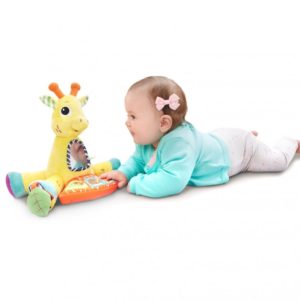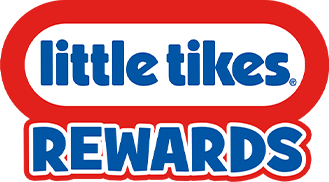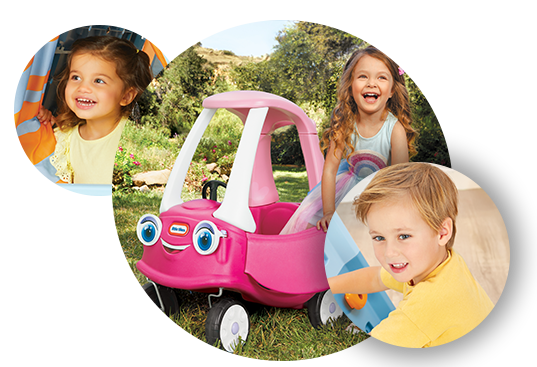The Importance of Active and Early Play
Life with an infant can seem, at times, like an endless rotation of feeding, burping, diaper changing, holding/rocking/bouncing, and sleeping. But playing? Yes! Play deserves a place on this list of daily activities… even for a newborn.
There is lots of evidence that play is a critical ingredient in child development – not only do children build physical skills, but play also fosters their creativity and helps them hone foundational social skills. This is especially true for unstructured play, the type that comes with few set rules and lots of wiggle room for kids to create their own structure as their fun and games evolve.
As it turns out, a child is never too young to engage in play. For an infant, playing can be as simple as reaching for an object and successfully grabbing ahold of it before it goes into the mouth. Play can also involve rolling or scooting and eventually discovering a reflection in the mirror, or discovering a face hidden behind a pair of hands. Play with babies is all about engaging with their surrounding world and the people inhabiting it.
Understandably, parents can feel challenged by putting baby play into action. “What should I do with my baby?” is a common thought, but the hidden question is so often really “What should I do for my baby?” The answer to both lies in truly engaging and having fun. Put down your phone, set aside your laptop and focus on connecting with your child. Don’t hesitate to get down on the ground so that you are eye-to-eye and talk (or even coo or sing) as you play. Everything else will melt away as you learn more about your child and your child learns more about the world.
Some ways to play:
Original post written and used with permission by:

Laura Jana, MD, FAAP, CPST
Pediatrician, Author of Heading Home With Your Newborn
Cara Netterson, MD,
Pediatrician, New York Times Best Selling Author
There is lots of evidence that play is a critical ingredient in child development – not only do children build physical skills, but play also fosters their creativity and helps them hone foundational social skills. This is especially true for unstructured play, the type that comes with few set rules and lots of wiggle room for kids to create their own structure as their fun and games evolve.
As it turns out, a child is never too young to engage in play. For an infant, playing can be as simple as reaching for an object and successfully grabbing ahold of it before it goes into the mouth. Play can also involve rolling or scooting and eventually discovering a reflection in the mirror, or discovering a face hidden behind a pair of hands. Play with babies is all about engaging with their surrounding world and the people inhabiting it.
Understandably, parents can feel challenged by putting baby play into action. “What should I do with my baby?” is a common thought, but the hidden question is so often really “What should I do for my baby?” The answer to both lies in truly engaging and having fun. Put down your phone, set aside your laptop and focus on connecting with your child. Don’t hesitate to get down on the ground so that you are eye-to-eye and talk (or even coo or sing) as you play. Everything else will melt away as you learn more about your child and your child learns more about the world.
Some ways to play:

- Using a plush peek-a-boo toy, alternate between hiding the face of the doll and hiding your own face. As your baby gets older, you will notice that when you make different facial expressions you will elicit a variety of responses in return.
- Hanging toys can stimulate or soothe babies, depending upon the colors, motions, and sounds involved. These days, though, hanging toys are used outside of the crib – the bed is for sleep, not for play. Use them during play time on a mat or suspended above an infant seat.
- Tummy time should be fun, and for some babies it takes a while to get here. Work on it slowly, using toys that engage. Younger babies will follow rolling toys while older babies love to find themselves in mirrors.
- Something as simple as playing pat-a-cake with your baby on your lap is developmentally stimulating. Talking to you child, singing, rhyming are all forms of communication that help develop future language skills.
Original post written and used with permission by:

Laura Jana, MD, FAAP, CPST
Pediatrician, Author of Heading Home With Your Newborn
Cara Netterson, MD,
Pediatrician, New York Times Best Selling Author













































